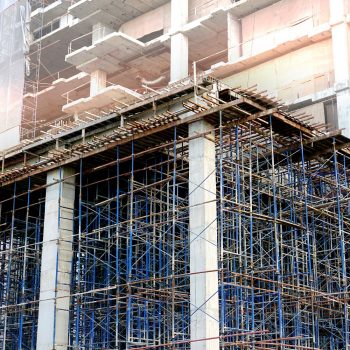A Scattering of Bricks and Girders…The Indian Government is stiffening some spines
A Power Station that’s only nine-tenths built is nothing but a scattered pile of bricks and girders and the occasional builder looking for somewhere to plug in a kettle: all the value is in that crucial last tenth of construction, and until it’s finished you haven’t got a Power Station at all. It’s worthless. That’s the problem with Project Finance, you pump millions into something that takes years to plan and more years to complete and right up to the last moment that crucial something isn’t really there at all. And if you can’t even see your funding security, let alone sell it, completion becomes a nerve-jangling test of nerve and resolution, which is why so many construction projects come to nothing. Look no further than the crumbling, still unfinished mega Port Complex in Sri Lanka… it’s not really a mega Port Complex at all, just a scattering of bricks and girders after the Chinese financiers lost their nerve, took away their diggers and scuttled back to Beijing.
It’s all a question of nerve and resolution, and that’s exactly why in these uncertain times Governments sometimes have to step in and stiffen some spines along the way: a lesson that was lost in Sri Lanka (hence the concrete and girders), but it’s a lesson the Indian Government of Prime Minister Modi has now taken on board.
Historically the subcontinent’s property markets have been bedevilled by unfinished housing projects, with developers running out of finance and leaving behind yet another concrete wasteland for children to play in and the homeless to find such shelter as they can. And that’s just the point: bearing in mind India’s rapidly burgeoning urban population and its pressing shortage of affordable housing stock, this all to public waste of resources has been little short of a disgrace. But not any longer…
Last month the Government approved the creation of a $1.4 Billion Fund which will be deployed to complete at least 1,600 unfinished housing projects across the country, and there will also be an additional $2 Billion available for much-needed project finance from state-run financial institutions. The Chairman of Mumbai based Anarock Property Consultants, Anui Puri, confidently predicts the approved funds are likely to “rescue thousands of homebuyers who have invested in blocked projects”, and coming from Mumbai he should certainly know what he’s talking about. At a more Macro level, Reuter’s sector report also predicts a market bounce over the coming year as the Government’s initiative starts to gain traction: 11 out of 15 analysts polled took the view the new Fund would “significantly boost demand” with average national house prices set to rise by 3% next year and 4.3% in 2021.

Modulex Construction is the World’s largest and India’s first Steel Modular Building Company, working to meet the opportunities of India’s real estate markets in a practical and focussed manner. It was established by Red Ribbon to harness the full potential of these fast-evolving markets and deliver exciting opportunities for investors: because, when it comes to investing in property on the subcontinent, nobody knows its markets better than Red Ribbon.
Executive Overview
The bigger the project the bigger the headache, and it can certainly be frustrating, devastating even to find things faltering in the final stages of development. So it certainly has to be a good thing that the Indian Government is taking steps to ease that crucial final stage of delivery, especially bearing in mind the subcontinent’s pressing need for affordable housing where a rapidly growing and increasingly urbanised population has created demand levels like never before.
But of course, it never pays to focus exclusively on one solution only, and to my mind, Modular Construction is an equally important weapon in the Indian Government’s armoury to address this pressing issue.
For a start, a Modular Project doesn’t take years to plan and deliver, it costs less than traditional methodologies and it can deliver reliably, no matter how difficult the externalities might be. In short, there’s virtually no chance of a Modular Project remaining uncompleted.
So whilst we should all support initiatives of the kind launched by the Indian Government last month, we mustn’t forget there are other ways forward and sometimes they’re much better ways too…






Leave a Reply